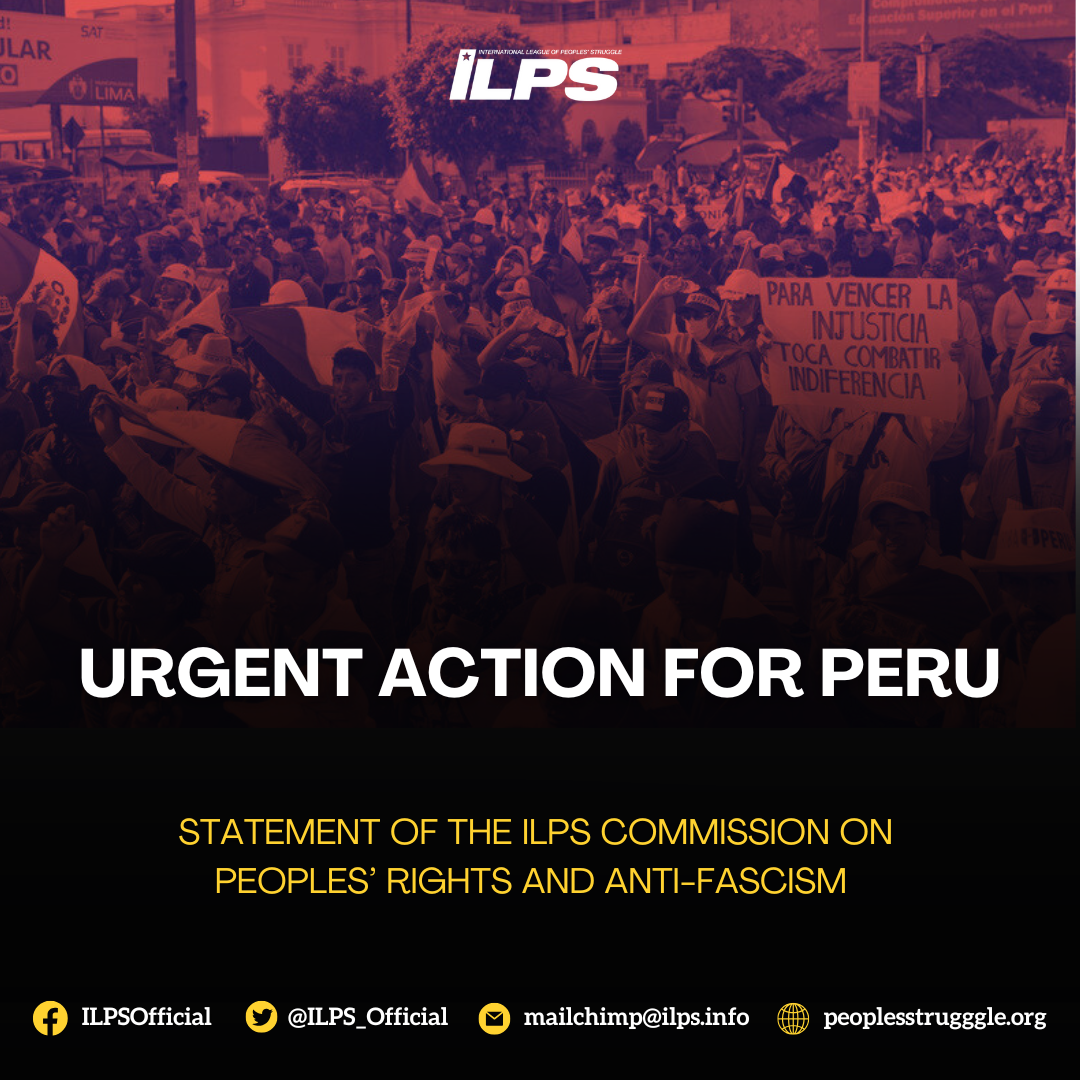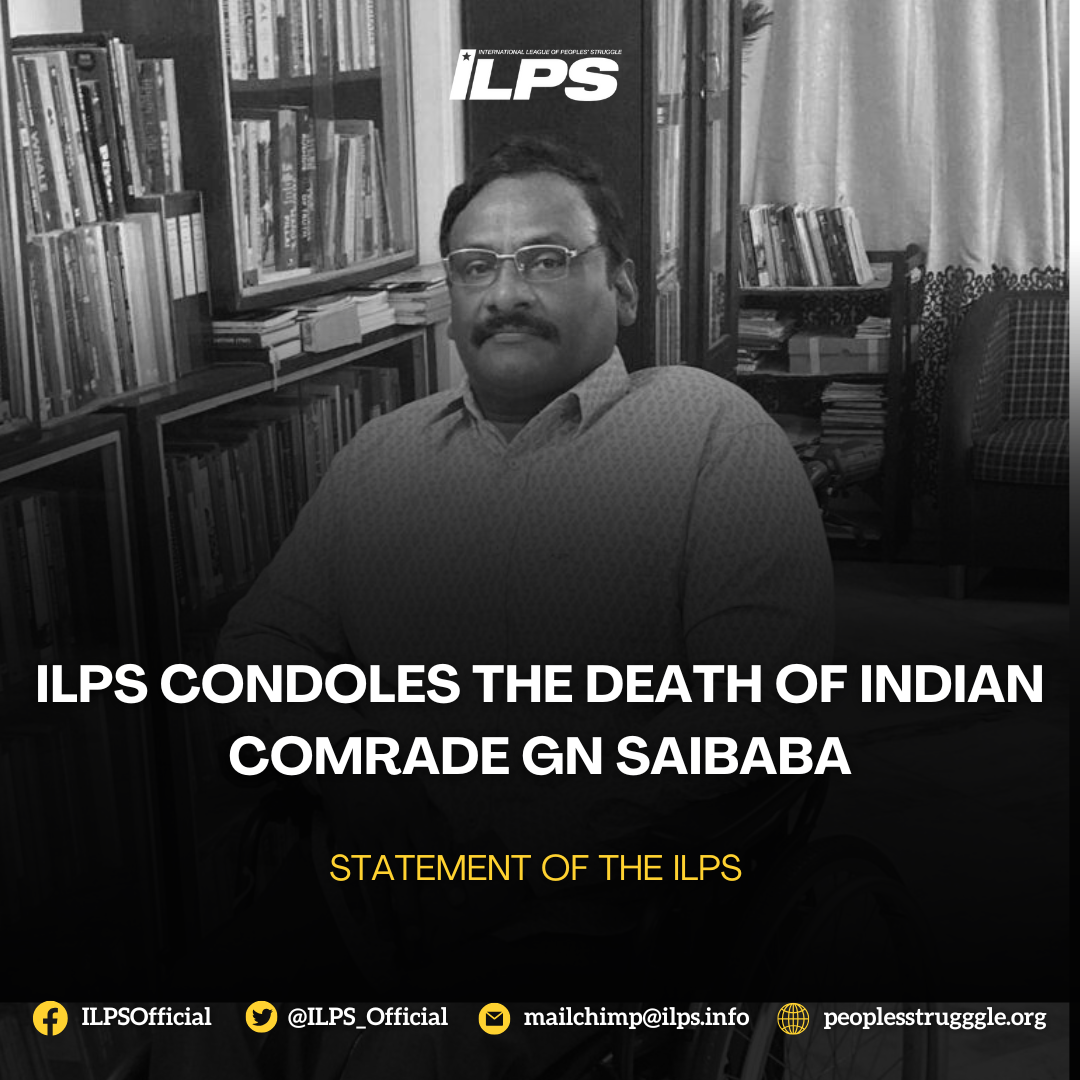A report from the International League of Peoples’ Struggle (ILPS) Guatemala
in conjunction with Organizacion Amancio Samuel Villatoro
by Samuel Villatoro
Important Facts about Guatemala
Guatemala is one of the countries in Latin America with the most inequalities. It has a population of 18 million people. Its natural and economic wealth are concentrated in 22 families with the greatest amount of capital, who own some of the largest companies in the country.
Historically, these families have played a very important role in the political and social fields within the country, and the ones responsible for the inequality and poverty demonstrated in the following statistics.
9.3 million poor people by 2014
49.6 % of malnourished children under 5
25.29 % of illiteracy at the national level
30.5 % second country in Latin America with prevalence of hunger
From 1995 to 2014, it ranks 133rd out of 187 countries on the Human Development Index. More than 60% of the people in poverty.
– 1.6 million migrants
– 46,000 citizens leave the country annually due to lack of opportunities.
– external and internal debt exceeds 109 million Quetzals.
– corruption and drug trafficking installed in the state.
– the concentration of land is in the hands of a few families.
– mining by the national and international companies only contributes 1% of their royalties to the country. – they cause environmental destruction in the communities, deaths and persecution of those who oppose their functions.
– based on the 2018 Census, the indigenous people population represents 43.6 % of the Guatemalan population. Though it is a known fact that the government implemented strategies to deliberately lower the percentage, it still remains that the indigenous people remain to be the most excluded and neglected population in society. They had to endure different dispossession in history, from the Spaniard conquest, the expropriation of land, extraction of natural wealth to genocides.
In Guatemala, there are 23 indigenous peoples who speak their own language: Kaqchiqueles, Pocomchíes, Tz-utujiles, Pocomames, Ch-orti-es, Uspanteko, Sipakapenses, Xincas, K-ichés, Mames, Chuj, Akatecos, Awacatecos, Maya mopán and itza, Sakapultecos, Chalchitecos, Q-eeqchies, Q-anjob-ales, Ixiles, Jakaltecos, Achi-es, Tektiteko, and Garífuna.
The Covid-19 Pandemic
The existence of the new virus COVID 19, has shown in a very concrete way all the neglect that the rulers have had historically with the people of Guatemala. Their actions make it very clear that their only and most important interest is the economy, despite the fact that the urban and rural areas of the country are under critical circumstances because of wrong decisions they have made to address this pandemic.
Many of the companies that for years have declared great accumulations of capital, could not even absorb one month of the crisis, and instead opted to lowering their salaries or fire their workers.
The government has found in COVID-19 the perfect apparatus to manage million-dollar loans, under the excuse of building hospitals and strengthening the existing ones. Two months after announcing the first positive case and with more than 3,000 cases to date, the healthcare system has already collapsed showing that very little money from these loans has been used. Doctors and nurses have had to improvise instruments for their own precaution as the state does not provide them with the appropriate personal protective equipment. The demand to open up and use the facilities of the Military Hospital has fallen on deaf ears.
Militarization has increased, using fascist methods to enforce curfews at very complex times for the population that has not been able to stay at home due to the maintenance of the economy at home. In the first weeks, hundreds of Guatemalans were imprisoned for being outdoors during established hours of circulation. In the municipalities of Nahuala, Santa Catarina Ixtahuacan and Santa Lucia Utatlan in the department of Solola, 120 km from the capital city, implemented a state of siege for 30 days. This means the suspension of constitutional guarantees, such as free movement, prohibition of meetings or demonstrations, and any citizen can be detained and interrogated without a judge’s order.
The deportations of Guatemalan migrants detained in the USA have not stopped, many of the Guatemalan returnees have tested positive for the virus. On the other hand, many have tested negative but continue to be detained for more than 50 days. Due to the poor execution of the processes, there have been cases in which a patient has had to undergo more than 15 test swabs with false positive and negative results, many indicating that they arrived in Guatemala without the virus and that they acquired it in the facilities.
The government led by President Alejandro Giammattei , has promoted supposed support for the families most in need, using criteria unattainable for families suffering from extreme poverty.
For example, there is a bonus of Q 1,000.00 (US$130) that the state will give to needy families and will be given upon presentation of the electricity receipt, then through a code which the person has to enter in an automatic teller machine with his DPI (identification document). Another aid is a solidarity bag of food for the parents who have their children in school. These two measures do not take into account that the majority of the indigenous population does not have electricity in their homes, nor their children enrolled in educational centers.
The basic health recommendation of hand-washing to prevent the spread of COVID-19 is impossible since most of the indigenous people’s communities do not have running water. Written information is only in Spanish and not in all other indigenous languages. In Guatemala, many of the regions still speak their own indigenous language and do not speak Spanish.
One of the most questionable actions has been the closure of the country without prior notice, where farmers were totally affected by not being able to transport their crops to the markets. However, the trucks of companies such as Coca Cola and the Cervecería Nacional (National Brewery) circulated normally.
For most of the indigenous people, COVID-19 is just one more pandemic, since for them there are currently many pandemics that have been hitting them, such as malnutrition. The lack of attention in the community centers has been historical in their communities. This problem has existed even before the crisis. Many of them have to walk for hours in order to reach a health center, where they do not have the necessary medicines or equipment, and most of the time being the cause of many the deaths from easily curable diseases.
The indigenous people demand respect for their ancestral cultures, that the virus be treated with ancestral methods and that they continue to be allowed to continue tending to their crops. For years the indigenous peoples have demanded respect for their cultures and respect for mother earth, promoting good living through the consumption of organic and non-canned food, which just these days is the way to survive. For years they have had a direct struggle with the springtime devourers.
In Malacatan San Marcos, Mateo Bernabe of the union and social organization National Coordination of Social and Labor Unity (CNUSS), informs us that COVID-19 has already infected their members and claimed some lives within their ranks. They are in a constant struggle with the national government in demanding equipment for the frontline personnel.
Rigoberto Aju, community leader in the San Nicolás Fraijanes community, lives in a village located 21 kilometers outside the capital. His community, which is located in the middle of one of the richest areas of the city, is being discriminated against and militarized for having positive cases, to the point of wanting to lock it down completely, without regard to the people if they needed to go out to work or not.
In the capital city, Nélida Corado, general secretary of the trade union of healthcare workers SINFIGTRAMISPAS, informs us about the cruelty of the health ministry’s actions in admitting COVID-19 patients to a health center for people with tuberculosis and HIV/AIDS, knowing that these patients have a higher risk of being infected.
About the Totonicapan Department
Gerardo Tzul from the indigenous organization Tzanjuyu Integral Development Association (ADIT) in the Totonicapan Department informs us about the situation in his region:
“In the department of Totonicapán, 98% of the population identify themselves as indigenous, based on the 2018 Census, before COVID-19. Public health services and the health conditions of indigenous people have been deficient. The Ministry of Health recognizes that it does not have sufficient personnel to attend to the rural population and that qualified personnel are not available. Medical personnel, epidemiologists, doctors and nurses are more concentrated in other departments of the country classified as “important”.
In Chwi’meq’ena’ where a large majority of the indigenous population show some of the poorest indicators, these being health (respiratory and cardiovascular diseases), poverty (73.29% of the people live with US$2 a day to cover their basic needs, malnutrition, and lack of employment. MSPAS public spending is so low that it does not exceed 140 quetzals (USD 18) per capita, which forces families to assume a significant proportion of the cost of care and medicines.
With regard to poverty, there is data indicating that the inhabitants of rural areas are poorer than those of urban areas, but in rural areas (INE), the indigenous people are in a worse degree of poverty (85%) than the ladino creoles or mestizos (63.7%).
For this reason, the neighbors and the population express that they live a calamity every day. This COVID-19 pandemic worsens the calamity in which they already live, with the implementation of quarantines and states of siege, the communities are faced with these two options: stay home and die of hunger, or go out and earn your daily bread, get fined and get infected.
As of May 28, the number of infected people in Totonicapán is 29, which corresponds to 0.67% of the national population, according to the graph of cases by department provided by the government. Many facts are still under investigation and information is withheld, like the case of an indigenous woman from the rural area of the Chipuac community, who has been reported that she died from COVID-19 without giving any further details.
The authorities of 48 districts in Totonicapan have issued a communiqué ordering the total closure of roads entering and leaving each of the districts to prevent the spread of COVID-19. While these measures prevent the spread of the virus, they affect the economic income of the community members because most of them live day by day.
In one community called Chotacaj, there are more than 45 different houses that place white flags to ask for food aid. In homes where more than one family lives, the need for food increases. The community authorities complain that those who have vehicles leave whenever they please and make fun of them for not letting them out. The authorities and people of the different communities speak out and show their profound rejection of any act of corruption that may emanate from public entities, officials and public employees in the face of this situation. They demand that there be no manipulation or misappropriation of resources intended for the Guatemalan population, as these communities have been in a vulnerable position for a long time.
As community members and indigenous citizens, we have organized ourselves to accompany the authorities in order to identify people who present some symptoms to warn of any infection, and also to deliver some food supplies to the homes. However, it is not enough because the number of homes is increasing every day.
If the virus spreads in rural communities, it will be devastating and there would be many deaths. The percentage is minimal in Totonicapan due to the control and organization of indigenous peoples and authorities.
The production of basic grains such as corn will be low because they will only depend on natural rainfall for the development of the cornfields. The farmers will not use fertilizer this year, as they do not have the money to buy them. This will cause a decline in food security in the area.
The advance of the coronavirus in Totonicapan Department has been stopped, because of the control of the community authorities. However, the isolation has generated more poverty, malnutrition, famine, unemployment throughout the department, including the community authorities who are working full time every day without pay.”
Conclusion
In the face of all of this, the communities of indigenous peoples continue to resist. The International League of Peoples’ Struggle (ILPS) will continue to strengthen the organization and unite the struggles to resist the crisis of this pandemic and the consequences it will leave us in the future.
Informational sources:
Wikiguate
Deguate.com
Rigo Aju
Nelida Corado
Asociación Desarollo Integral Tzanjuyu (ADIT)
Mateo Lopez
Julia Marcelo



